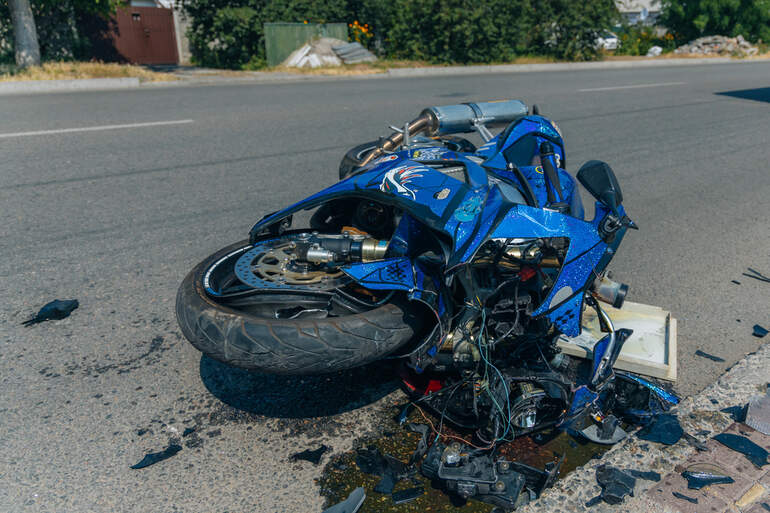After a motorcycle collision, confusion and pain can eclipse your ability to act. You may wonder where to turn next, or whether insurers will treat you fairly. In that fog, a strong advocate experienced in two-wheeled crashes matters. You need someone who knows how to deal with aggressive insurance tactics, complex traffic laws, and proof that favors riders.
Here are some practical steps to protect yourself legally:
Call the Authorities Without Delay
When a crash occurs, dial emergency services immediately. Having law enforcement on scene means there’s an official record of what happened. The responding officer documents damage, road conditions, statements, and contributing factors. That written report supports your later position. Avoid altering the scene unless needed for safety. Stick to factual answers when questioned. Don’t admit fault. Ask for a copy of the incident number to request the full record later. This early documentation gives your side credibility before memory fades or reports conflict.
Gather and Safeguard Scene Evidence
You need concrete facts on your side. Use your phone (if safe) to take wide and close photos of your bike, skid marks, intersections, damage, injuries, and lighting. Capture license plates, road signs, and signage nearby. If bystanders saw the incident, ask for names and numbers. Write down what you remember as soon as possible. Even small details, like direction, speed, and weather, can prove critical later. Keep your original files, avoid deleting or editing them. You’ll want to share them with your advocate and use them in negotiation or court.
Seek Specialized Support Early
You want someone who understands rider issues deeply. If you’re looking for motorcycle lawyers, Rider Justice can help you out. Their firm offers over 25 years of experience representing people harmed on two wheels. They fight insurers’ tricks and handle the full scope of post-crash work. That includes claims review, negotiation, gathering proof, and fighting for full compensation. They are dedicated motorcycle lawyers who anyone can contact for a free consultation to determine if they have a case. Moreover, if you do have a case, their lawyers will do their best to receive fair and maximum compensation you deserve.
Manage Insurance Contacts Carefully
Insurance adjusters may reach out quickly. Remain cautious. Before speaking in detail, ask for the person’s name, company, and claim number. Don’t sign anything immediately. Don’t volunteer additional facts, but just basic ones. Avoid accepting early offers until you’ve had a chance to review them. Use written responses rather than verbal ones whenever possible. Let your representative deal with complex questions or counteroffers. Be wary of recorded statements or leading questions. Staying strategic here can make a difference in how much you eventually recover.
Understand Shared Fault Rules
Many states follow comparative‐fault systems. That means more than one party may bear responsibility, and your compensation may be reduced accordingly. For example, if your share is 20% and the other part is 80%, your award could drop proportionally. In a jury or settlement, opposing sides try to shift blame to you, such as by claiming speeding or a lack of gear. You’ll want to counter that with solid evidence and an experienced guide. Knowing how your jurisdiction handles shared fault helps you avoid surprises and sets expectations for what you might realistically recover.
Track Every Expense Connected to the Incident
Money spent after a wreck adds up quickly. Keep receipts for repairs, towing, replacement gear, and transportation. Store medical bills, prescription costs, and therapy invoices. Record lost workdays and wages as well. Even small purchases such as bandages, crutches, or parking fees linked to treatment matter. Organize them in one folder or digital file. These records provide a clear picture of the financial burden. When it’s time for negotiation or court, having documented costs makes your argument stronger. Without accurate proof of losses, it’s harder to demand fair recovery.
Meet Deadlines for Filing Actions
Time limits matter. Each state sets statutes of limitation that control how long you have to bring a case. For most traffic collisions, the period ranges from one to three years. Miss that deadline, and your claim may disappear completely. Mark the cut-off date early and work backward to stay ahead. Court calendars and insurance processes take time, so don’t wait until the last minute. Acting within the allowed period gives your advocate more flexibility to prepare, review records, and build a complete argument. Prompt action preserves your chance for compensation.
A collision on two wheels can change everything in minutes. Yet by following clear steps, calling the authorities, collecting evidence, consulting a focused advocate, managing insurer contact, and tracking expenses, you protect your future. Meeting filing deadlines, anticipating defenses, and weighing settlement against trial all play roles in achieving fair recovery. Staying engaged from start to finish ensures you remain in control. While no guide can remove the stress of the experience, knowing how the process works prepares you for what lies ahead. Taking these actions today builds a stronger foundation for tomorrow’s justice.


